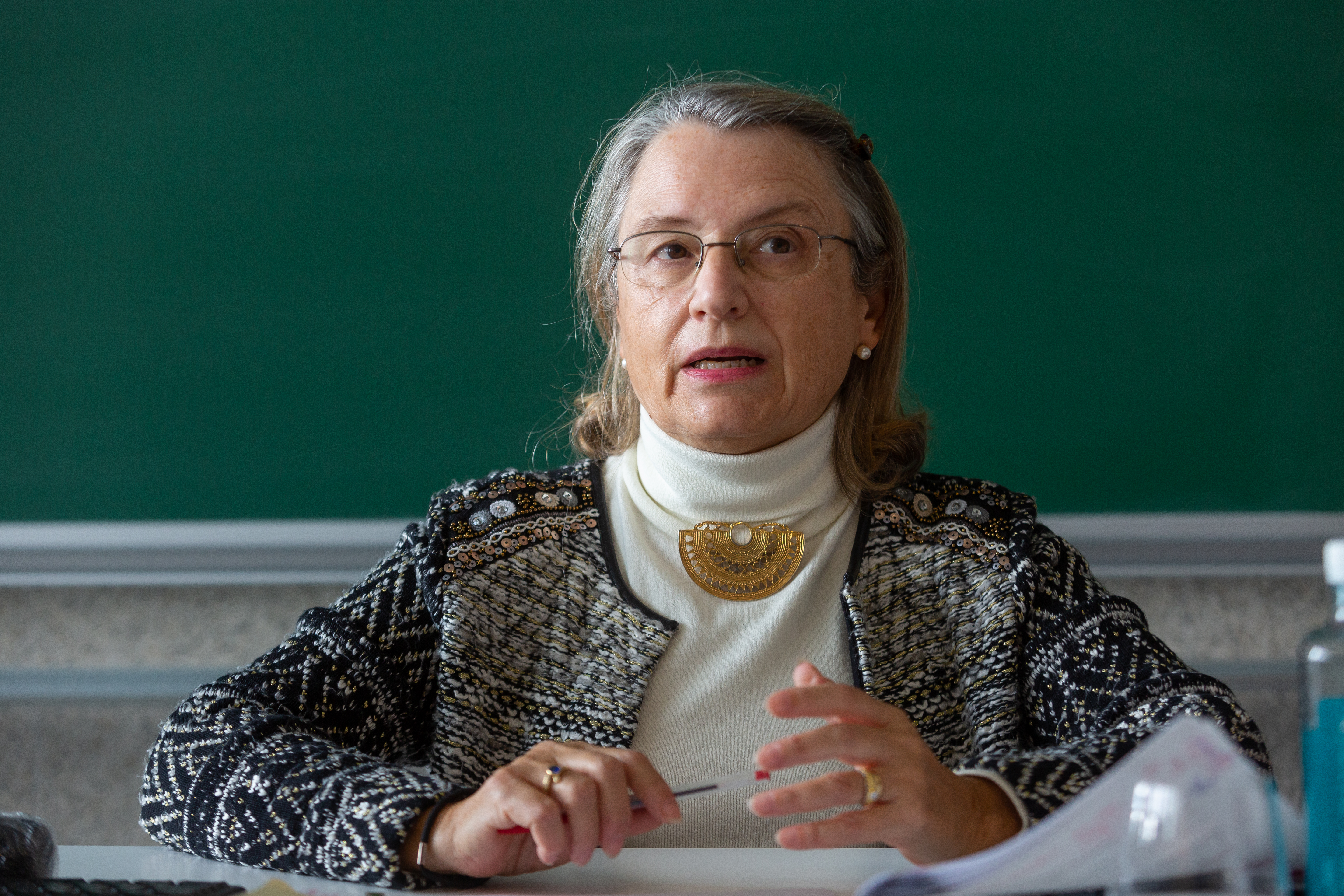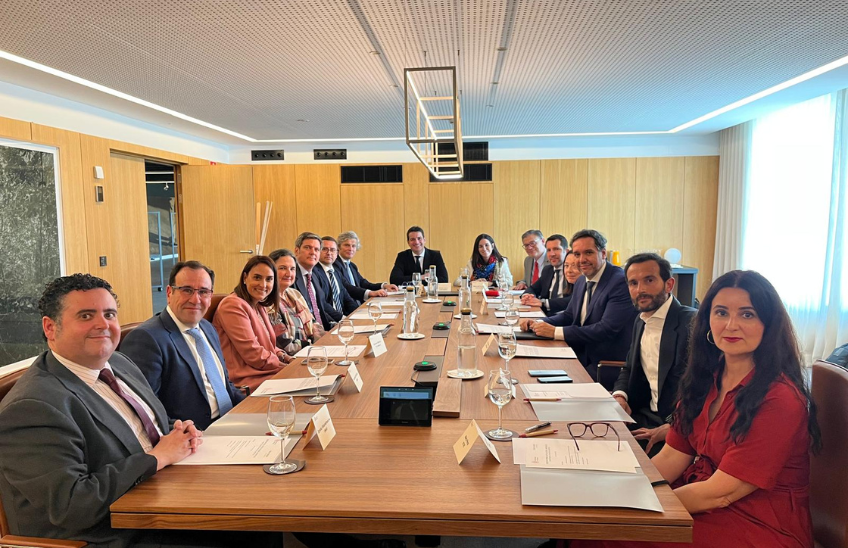"The pandemic period has been characterized by a lack of regularized parliamentary oversight."
Piedad García-Escudero, professor at Constitutional Law, spoke at the second session of the XXI conference of classroom of Parliamentary Law.

PhotoManuelCastells/Piedad García-Escudero, during her speech at the conference of the classroom de Derecho Parlamentario.
10 | 11 | 2021
Piedad García-Escudero, professor at Constitutional Law and currently head of department de programs of study Jurídicos at administrative office General del congress de los Diputados and legal advisor to the Justice Committee, pointed out that the period of the pandemic "has been characterised by the lack of regularised parliamentary control". She said that the functioning of the House had been profoundly altered by the pandemic: "Security measures had to be taken: extension of telematic voting - to a certain extent the importance of deliberation was being overlooked, as it is pre-decided before debating what the MPs are going to decide - and a reduction in seating capacity," she said, but she also wanted to highlight the capacity of parliamentarians to react. "Parliament has been there, it has not been in quarantine", he said.
With a discussion paper entitled, Funciones y funcionamiento del Parlamento en tiempo de crisis, Piedad García-Escudero intervened in the second session of the XXI conference of the classroom of Parliamentary Law organised by the University at partnership with the Parliament of Navarra, reviewed the different crises that have occurred since 2008 (economic recession) and which have affected the institution.
A fragmented government results in a less strong parliament, where the oversight work that the Cortes must perform vis-à-vis the executive power suffers. This is another of the main conclusions he drew. He highlighted the end of bipartisanship in 2015, which resulted in a government with no majorities and a high dependence on minority parties. "This status results in minimal legislative activity, which does not allow for the implementation and transposition of directives", he explained.
The lawyer's intervention focused above all on the 12th legislature, when the Spanish political and social panorama experienced moments that had never happened before: a motion of censure, three failed investiture sessions and repeated elections, long periods of governments in office, budget prorogations, etc. "We can say that the 12th legislature was sterile because it failed to make progress in the culture of pacts, which is what the multi-party system leads to". He also spoke of the increase in the processing of decree-laws instead of laws; appointments that cannot be carried out due to a lack of consensus and the increase in the number of commissions of research, which nevertheless fail to issue reports or final opinions.
Parliament, framework for pluralistic and agreed answers
After García-Escudero's speech, José Tudela, secretary of the Giménez Abad Foundation; the lawyer of the Parliament of Navarre, Manuel Pulido and Josep María Castellá, Full Professor of Constitutional Law and member of the Venice Commission at committee of Europe, intervened in a roundtable. The discussion tried to define the functions and functioning of the parliament in a post-pandemic time. José Tudela, stated that during the last crisis "the institution had not been treated with care". "When there is a state of alarm, the Parliament is the most important thing but it has almost been made to disappear. My impression is that Parliaments have not vindicated themselves." Tudela affirmed that the Parliament needs a diagnosis, a reform and to see how it can be undertaken. The professor presented the Parliament as the framework where plural and agreed answers are made; he advocated separating political responsibility from criminal responsibility and rethinking a space for the individual deputy. He bet to see how technology can contribute to improve the functioning of the institution and to apply artificial intelligence. "Parliament is the space for policies to be built in a rational way," he said.
For his part, Josep María Castellá added: "Citizens must perceive the institution as effective and the solution to Parliament's problems must emanate from Parliament itself". José María Castellá warned of the influence of populism and the erosion it produces in the institutional system, in the balance of power. "Democracy is not only the legitimisation of the people, it is also the control of power, which requires mechanisms," he concluded.

